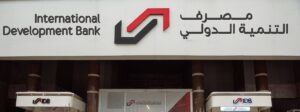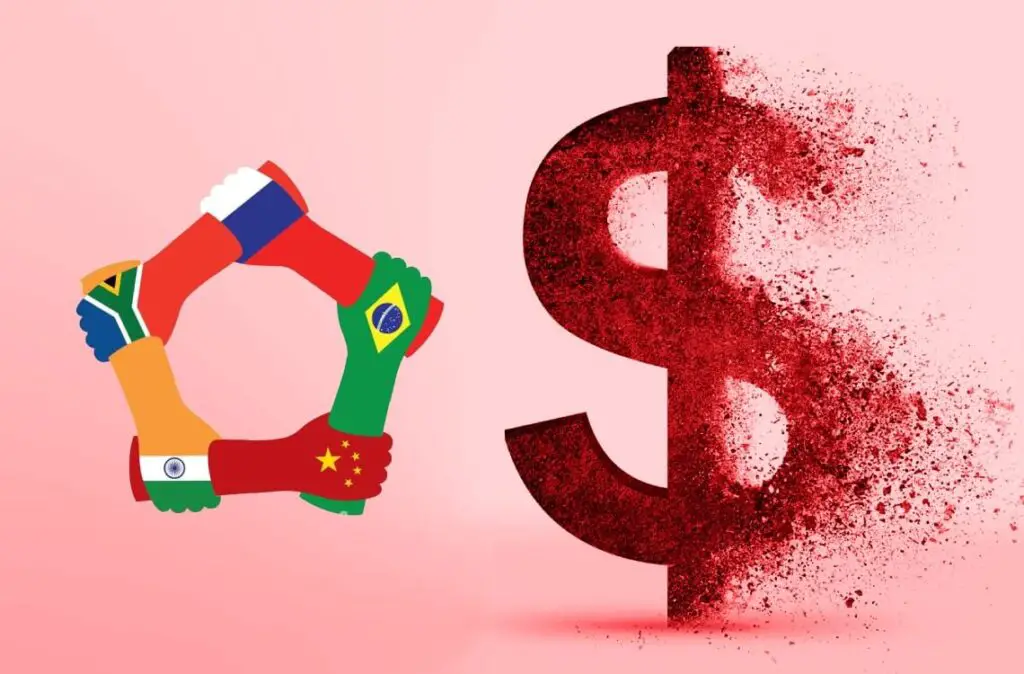- Proponents say this push embodies a broader vision for a politically impartial and more inclusive global financial ecosystem.
- Observers however question whether blockchain currency can survive under the often fractious BRICS bloc.
- Not long ago, the BRICS bloc unveiled plans to introduce the New Development Bank, an idea that remains largely unclear.
The push to redefine the contours of global economics has taken a new turn following a deal by the BRICS bloc—Brazil, Russia, India, China, and South Africa—along with recent members Egypt, Ethiopia, Iran, and the United Arab Emirates (UAE), to pioneer a blockchain-backed currency.
BRICS is setting the stage for the launch of a blockchain-powered currency and payment system, an initiative that is poised to take on the hegemony of the US’ King dollar that has held the global financial system by the jugular for decades.
Decentralized Financial Revolution: A Leap Forward
Central to this ambitious endeavor is the deployment of a blockchain-based payment mechanism that is designed to facilitate smoother global transactions while diminishing the reliance on traditional financial linchpins such as the US dollar.
Proponents note that this initiative is not merely about cutting transaction costs; noting that embodies a broader vision for a politically impartial and more inclusive global financial ecosystem.
By championing the principles of decentralization, the BRICS bloc says that it is laying the groundwork for a financial paradigm that promotes equity and accessibility on a global scale.
Geopolitical Reconfigurations: Can a blockchain currency survive under BRICS bloc?
The expansion of the BRICS coalition and its push toward adopting a new digital currency marks a critical pivot in global geopolitical and economic balance. Already representing a formidable portion of the world’s population and its economic muscle, the BRICS nations are poised to disrupt established power dynamics.
Currently, BRICS bloc accounts for roughly 42 per cent of the global population and represents an estimated 36 percent of the world’s GDP. The move to launch a blockchain currency under the BRICS bloc is yet another attempt by the largely fractious group to unite and give rise to a new global financial system.
For some time now, the Asian economic giant China has been pushing to reset the global financial framework albeit with several profound difficulties. Whereas the offer now is that of a virtual currency, the experience with hard currencies may offer a glimpse into what could happen in the months ahead.
BRICS’ move to launch a blockchain currency comes following months of heightened debate on whether the bloc is readying a unified currency, also fashioned to counter king dollar.
Critics hold that BRICS bloc attempts to launch a unified currency must surmount several hurdles. For instance, though the BRICS membership is expanding, new countries still exhibit little or no appetite for Russian rubles even as the Chinese yuan finds itself increasingly hard to go global on account of Beijing’s largely closed capital markets.
Citing the 2002 launch of the Euro across the EU bloc, observers also note that the push for economic zones to adopt a common currency – virtual or otherwise – is not new. For over 20 years now, the Euro has not registered a significant shift in the dominance of the King dollar yet the currency came in as an alternative to the US dollar.
Additionally, not long ago, the BRICS bloc, unveiled plans to introduce the New Development Bank, an idea that remains largely unclear on where the outfit is drawing its financing.
A further risk remains in the often tense ties between the main BRICS bloc member countries such as India-China border tensions as well as Brazil-China trade relations. These tensions ignite strong undercurrents that often disrupt any efforts to strike a unified front in shaping a global economic alliance.
Can BRICS bloc give rise to open and inclusive growth?
For years, BRICS nations have said they’re committed to collaborations beyond mere economic recalibrations by championing open and inclusive cooperation. Predicated on the principles of non-interference and mutual advantage, BRICS nations’ policy aims to attract other growing economies and developing states in a shared journey toward prosperity.
Overall, the group says its plan is an audacious call to arms against poverty, unemployment, and social marginalization, while championing a model of inclusive development that aspires to uplift the global populace.
Read also: From US Dollar to diversification: How BRICS Pay will impact US-Africa trade
For Africa, blockchain currency could open new prospects
For the African economies of the BRICS bloc, particularly, the advent of a blockchain currency heralds a new era of economic possibilities. For instance, this initiative could significantly bolster autonomy in international commerce and policy formulation, mitigate trade expenses, and shield economies from the battering often triggered by currency fluctuations.
Economies such as South Africa stand on the brink of enhanced economic resilience and clout, simultaneously voicing the aspirations and concerns of the African continent within the BRICS framework.
The BRICS bloc foray into blockchain currency and payment systems is a bold stride toward reimagining the global economic landscape. It signifies a departure from traditional financial structures, and calls for a more equitable and comprehensive system that serves the interests of all nations.
For African countries, in particular, this development offers a fresh opportunity to recast their roles in the realms of global trade and finance, forging pathways toward development paradigms that resonate with their economic and societal ambitions.
The BRICS digital currency initiative stands as a beacon for a new era of economic collaboration and advancement, heralding a future where prosperity is shared and more evenly distributed across the globe.




